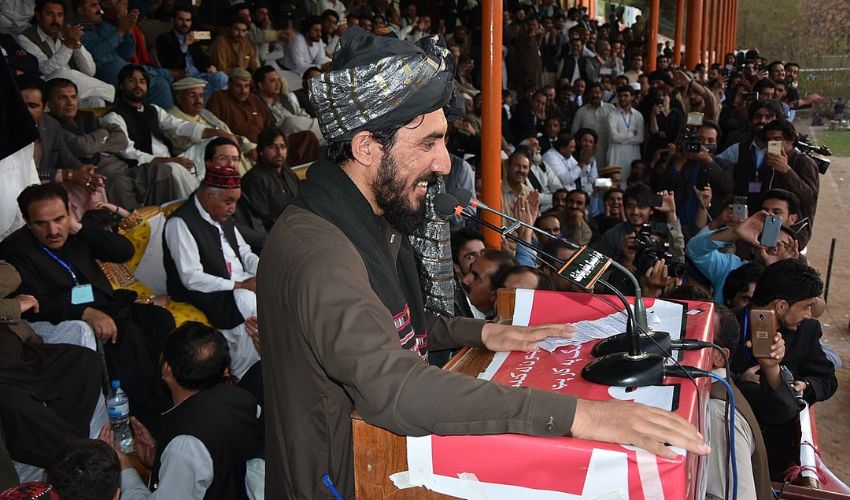Pashtun Tahafuz Movement
The federal government has officially imposed a nationwide ban on the Pashtun Tahafuz Movement (PTM), according to a notification issued by the Ministry of Interior.
This decision, confirmed on Sunday, was made under the Anti-Terrorism Act 1997, and is based on what the government describes as “concrete evidence” of the movement’s activities that pose a threat to national security.
The PTM, founded in 2018, has gained significant traction among Pashtun communities, advocating for the rights of the Pashtun people, particularly those in the former tribal areas.
The movement has been vocal about the need for de-mining the tribal regions, ensuring freedom of movement, and addressing long-standing grievances like extrajudicial killings, enforced disappearances, and unlawful detentions.
PTM leaders have consistently demanded accountability for these actions and called for the establishment of a truth and reconciliation framework to address the injustices.
According to the Ministry of Interior’s notification, the PTM has been engaged in activities that “prejudice the peace and security of the country.” The government alleges that the movement has been involved in spreading “anti-national narratives” and promoting anarchy, which, in its view, jeopardizes the country’s stability.
The decision to ban the PTM comes amid growing concerns over its increasing influence and the potentially destabilizing impact of its activism.
The movement’s leadership has also faced significant government scrutiny. PTM leader Manzoor Pashteen, a prominent figure in the movement, has been a key target of such actions.
In August 2024, the Balochistan government banned Pashteen’s entry into all districts of the province for a period of 90 days, reflecting the increasing pressure on the PTM and its leaders.
Additionally, several other PTM figures have been jailed on serious charges. Ali Wazir, a Member of the National Assembly and a key figure within the movement, remains in prison. Another prominent PTM leader, Mohsin Dawar, announced his separation from the movement in 2021 and went on to form his own political party.
The movement initially began in May 2014 under the name Mohsud Tahafuz Movement, focused primarily on the rights and welfare of the Mohsud tribe in the South Waziristan region.
However, it was rebranded in January 2018 as the Pashtun Tahafuz Movement to represent a broader Pashtun cause.
Over the years, the PTM has garnered considerable support within Pashtun-majority regions, with thousands attending rallies and protests organized by the movement.
Despite the ban, PTM’s core demands and its influence within Pashtun communities remain strong. The movement’s emphasis on seeking justice for those affected by military operations in the tribal areas has resonated with many, particularly those who feel marginalized and oppressed.
The recent meeting between Manzoor Pashteen and Khyber Pakhtunkhwa Chief Minister Ali Amin Gandapur further highlighted the movement’s continued efforts to engage in political discourse, although its future remains uncertain under the weight of the newly imposed ban.
As the government enforces its prohibition of the PTM, it remains to be seen how the movement and its supporters will respond to these latest developments.
I am a dynamic professional, specializing in Peace and Conflict Studies, Conflict Management and Resolution, and International Relations. My expertise is particularly focused on South Asian Conflicts and the intricacies of the Indian Ocean and Asia Pacific Politics. With my skills as a Content Writer, I serve as a bridge between academia and the public, translating complex global issues into accessible narratives. My passion for fostering understanding and cooperation on the national and international stage drives me to make meaningful contributions to peace and global discourse.










